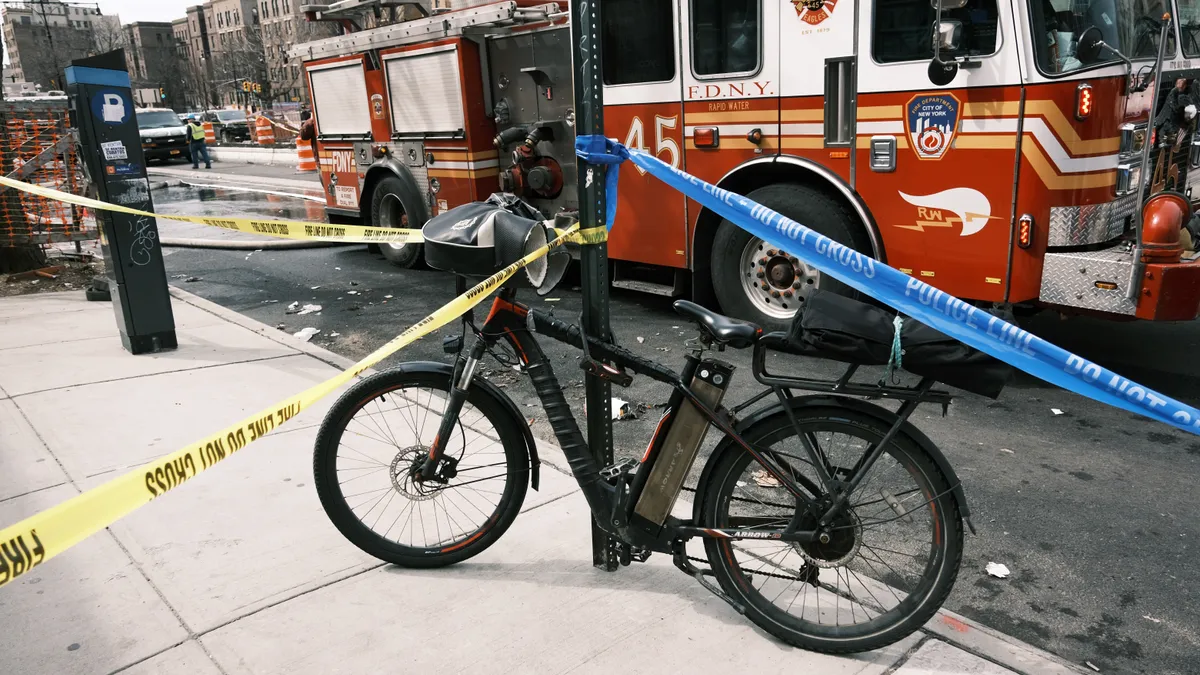Correction: A previous version of this article, and its headline, erred in describing the New York City e-bike trade-in program. The City Council approved a program last week, but it has not launched. The Equitable Commute Project's trade-in program, which launched more than two years ago, has received applications from more than 250 delivery workers and is the first of its kind in the U.S., the project says.
Dive Brief:
- The New York City Council has approved a new trade-in program for electric bikes and scooters to get bikes with uncertified batteries off the streets.
- The trade-in program will complement Local Law 39, which as of Sept. 16 requires the electrical systems and batteries for all powered bikes and scooters sold, leased or rented in the city to be certified by an accredited testing laboratory to comply with UL safety standards.
- Lithium-ion batteries from micromobility devices have been implicated in fires resulting in 13 deaths in New York City as of mid-July.
Dive Insight:
Battery fires linked to e-bikes and scooters have soared since 2020 as these devices have grown in popularity. Lithium-ion batteries can overheat when poorly manufactured, damaged or overcharged, potentially leading to fires. That’s why the Federal Aviation Administration prohibits spare lithium batteries in checked baggage and why Florida fire officials warned EV owners to move their vehicles away from flood-prone areas during August’s Hurricane Idalia.
According to a briefing paper a New York City Council committee prepared, “Lithium-Ion battery fires can be extremely dangerous because they are self-sustaining and are difficult to contain and extinguish.” The report says e-bike and e-scooter battery fires in New York City quadrupled from 2020 to 2022; one such fire at a residence in Queens resulted in the death of an 8-year-old girl, it notes. Most such fires happen at multifamily properties in low-income areas.
More than 250 delivery workers have applied for a separate trade-in program from the Equitable Commute Project, a micromobility advocacy organization. That program was the first of its kind in the U.S., the project says.












